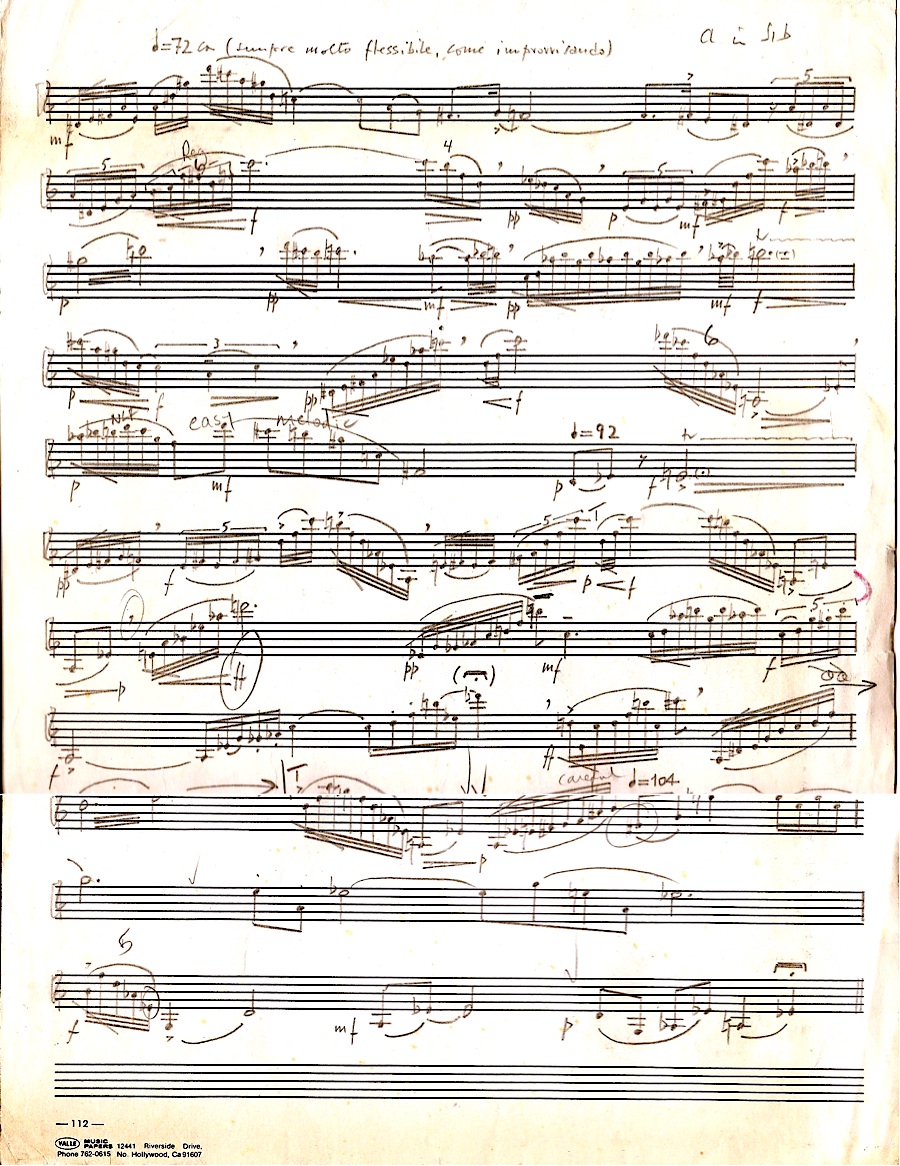Peter Otto & Terri Tunnicliff
Here are a few humble remembrances of Luciano.
– Long talks about music technology... he so forcefully asserted that «music technology is all about music and NOT so much about technology... music technology is best when it is transparent, invisible, in service of musical ideas.»
– I realize now, more than 20 years after last working with Luciano, that he was the first person to my knowledge to be thinking about the problem of «the sublime» in the digital domain. He saw a potential that computer music could be a vessel of sublime utterance, but that it would not yield easily, and the objective of attaining the sublime in computer music was perhaps a most noble and elusive ideal, toward which we were all obliged to strive.
– I saw John Chowning just last week and he reminded me that Luciano always advocated for him to write more music (and for the last 10 years or so Chowning has written several fine new works). John also mentioned in his lecture to our faculty and students that Luciano had commissioned Chowning's composition STRIA – a computer music composition which 40 years later is recognized as one of the few early classics of the medium.
– I've continued to work for years in the field of spatial and 3D audio. I often reflect on Luciano's profound intuitions about perception and spatiality in sound and music. Indeed, Ofaním used spatial musical manipulation as a thematic component, which has so much more impact than mere effect.
– Terri remembers that the clarinet solo in Ofaním was composed in a very brief but surely inspired moment... I don't quite remember the situation, but Luciano mentioned that he had an idea in mind for a clarinet «cadenza», then disappeared for an hour or two, and came back with the pencil manuscript (scanned image included below) from which all subsequent performances were played, note for note, no edits, with maybe 15 minutes of coaching...
Peter Otto and Terri Tunnicliff

[Manoscritto di Luciano Berio per la parte del clarinetto in Ofaním, n.d. [ma 1988]; archivio privato di P. Otto e T. Tunnicliff, per gentile concessione]